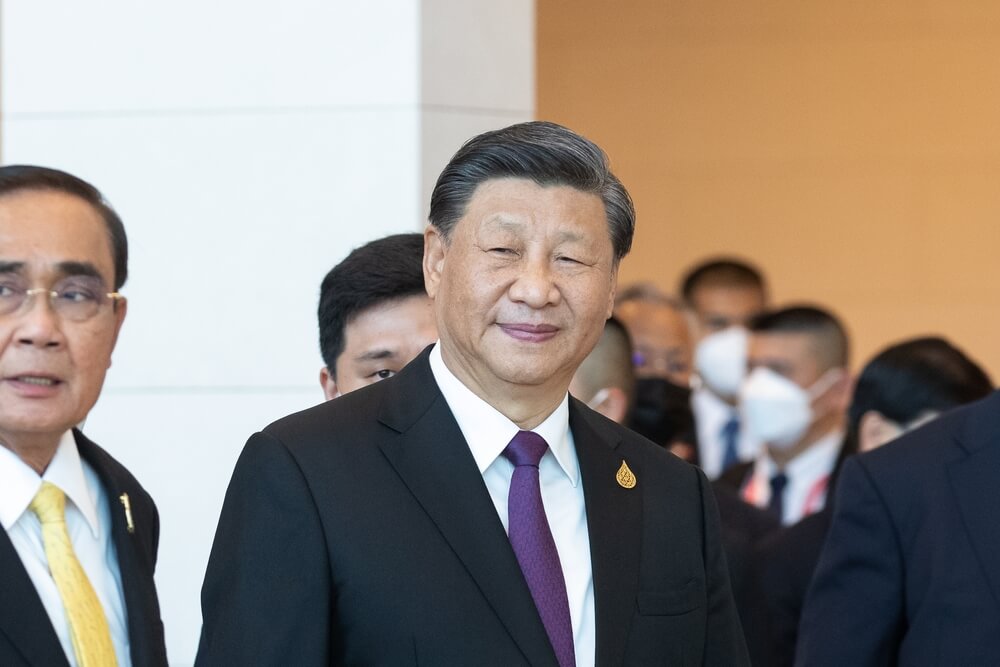The Communist Party of China has opted for a path where state security and the enhancement of military capabilities will push the revival of the economy into the background.
Premier Li Qiang's presentation of the national economic strategy to the National People's Congress suggests that China's long-standing emphasis on economic development will stop. Security will become a priority for the party, state, and its leader, Xi Jinping.
At the opening of the annual session of the NPC, the rubber-stamp of China's parliament, Premier Qiang spoke primarily about economic and developmental topics last Tuesday, only occasionally touching on foreign policy and global issues.
He presented the government's (party's) growth projections for this year (5%), from which it follows that the top of the state has no expectations of economic recovery this year after cooling down during the 3-year lockdown.
The projected growth is at last year’s level, which was also not ambitious, although more realistically set, given that 2023 was the first year after the closure due to the COVID-19 pandemic.
According to Chinese statistics, that rate has been achieved, and at the end of the year, it was 5.2%, even though other analyses showed that it was lower.
It is the same with this year's growth projection, which many economists say is too ambitious, including the IMF, which predicts China's growth to be 4.6% this year.
Lack of reforms
The Chinese economy will have to wait for the former much higher growth rates, or double-digit ones, responsible for its decade-long meteoric rise to the second-largest global economy.
There were also no plans for state aid to over-indebted provincial administrations and the decreasing real estate sector, given they were some of the principal generators of the multi-year decline of the national economy. Subsidies for these purposes remain at last year’s level.
Instead, the government told local authorities to "tighten their belts", meaning that the decline in local investment, especially social benefits, will continue.
Premier Li did not mention measures to restore investor confidence in the Chinese economy
Premier Li did not provide much reason for optimism to foreign investors either, who expect the government in Beijing to do something about its deteriorating investment environment, which is why there has been a large migration of investments to other Asian destinations.
For the first time last year, China's outflow of foreign investments exceeded the inflow, which increased at its slowest rate since the 1990s.
Premier Li did not mention measures to restore investor confidence in the Chinese economy, such as greater incentives than before or easing restrictive non-economic measures that have caused foreign companies to leave in recent years.
Strengthening the administration and the army
While the enthusiasm of the state and the ruling party to restore Chinese economic parameters to pre pandemic levels has been cooling down, their commitment to strengthening the massive state apparatus, especially the army, has been increasing.
The costs of the central state administration in Beijing will increase by 8.6% this year, and the military budget has increased by 7.2%.
The growth of China's military spending this year will be the same as last year
Both figures far exceed economic growth and round off the image that Xi Jinping has projected since the start of his term of a strong, nationalised central government with the security segment as a priority.
The growth of China's military spending this year will be the same as last year, which means that China will spend more than $230 billion on the military this year.
However, this projection should be taken with a pinch of salt, given that the Chinese military budget is non-transparent in many parts, and costs have always been higher than officially announced.
Consolidation of state control
The continuation of the large increase in the military budget is partly a response to the victory of Lai Ching-te in the presidential elections in Taiwan last January as the bearer of the policy of complete independence of the island and separation from China.
Judging by the projections of state expenditures, Taiwan will remain Beijing's military priority. However, it will also be a broader zone in the Pacific where China has demonstrated significant military ambitions during the reign of Xi Jinping.
 While the economy has been exhibiting not-so-good trends in recent years, enthusiasm for the administrative and military sectors has become an increasingly prominent feature of Xi's rule
While the economy has been exhibiting not-so-good trends in recent years, enthusiasm for the administrative and military sectors has become an increasingly prominent feature of Xi's rule
The economic and security projections in Premier Li's exposé clearly herald the further consolidation of state control and influence over the principal economic streams, which have been some of the crucial reasons for their decline until now.
Without announcements on the reform of problematic sectors, with the further weakening of liberal mechanisms and the continued strengthening of the state's role, Beijing has been steadily shifting away from its long-standing developmental focus.
While the economy has been exhibiting not-so-good trends in recent years, enthusiasm for the unproductive administrative and military sectors has become an increasingly prominent feature of Xi's rule.